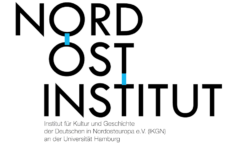Alienations in Soviet Jewish History 1953-1991
A research project by Dr. Ulrike Huhn
Jewish Studies as an interdisciplinary field of research ceased to exist in the Soviet Union after a brief heyday in the 1920s. Although it was possible again to conduct research in Jewish Studies under the conditions of the "Thaw" from the mid-1950s onwards, it remained strictly limited to ancient and medieval history and to linguistic issues. Recent history, in particular the situation of Jews in the late Tsarist Empire and the Soviet Union, remained taboo at Soviet research institutions. Beyond the academies and universities, representatives of the independent Jewish cultural and emigration movement began in the 1970s to engage with issues of recent Jewish history and ethnography in small unofficial circles.
The project examines the self-perception, everyday academic life, working conditions, networks, possibilities for action, and the academic topics of the (few) scholars at the state research institutions, museums, and libraries who were able to work on Jewish topics on a selective basis after 1953. Thus, the project is concerned with the ever-changing research margins of (mostly Jewish) scholars. It is also about the interaction with the subsequent generation of activists, who in the 1970s and 1980s were more self-confident in their desire to broaden the spectrum of topics for Jewish research in the Soviet Union. Within the tension between "individual normalization" and "collective experience of repression" the hypothesis of the joint project can be tested. What was the relationship between academic recognition and privileges on the one hand and Jewish research as a mobilization project and the insight into the limits of participation on the other?
The second focus is on the interaction between the academic centers in Moscow and Leningrad and the Soviet "periphery", i.e., both the research institutions in other Soviet republics and the sites of research in Central Asia, the Caucasus, and the areas of the former "settlement area" and the Crimea.







